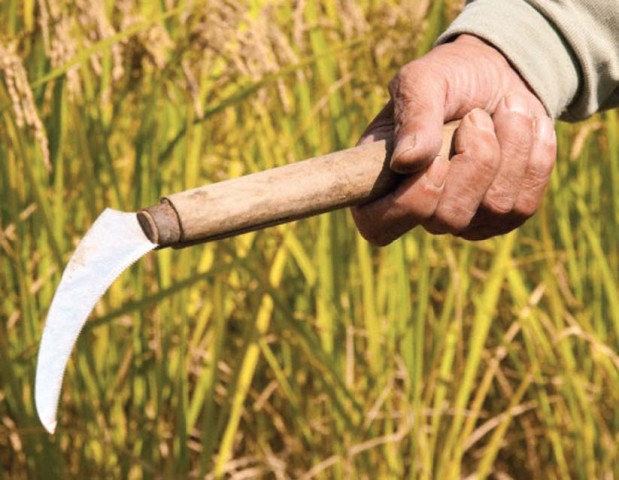PASSCO less active in commodities market since 2009
Defends itself, says it only intervenes on govt directives to procure major crops.

“In the absence of Passco, the farmers are at the mercy of middlemen and traders, who are exploiting the situation by paying less for minor food crops like grams, potatoes and onions,” a government official said.
Passco, established in 1973 as a public limited company with authorised capital of Rs100 million, was tasked with ensuring food security in the country. In 2010, the corporation had staff strength of 1,250, including 941 subordinate staff and 309 officers.
Though the corporation had a good number of officers at the management level, food experts were less than sufficient, the official said.
If required, Passco procures wheat and other agricultural commodities from the farmers and pay the support price set by the government for different crops.
It stores and maintains strategic reserves of wheat for supply to provinces and regions in deficit and the armed forces. Main buyers of wheat – the staple food – are Gilgit-Baltistan, Khyber-Pakhtunkhwa, Balochistan, Azad Jammu and Kashmir and armed forces.
A senior official of Passco stressed that the corporation only intervened when prices of a commodity dropped in the open market. “It enters the market only after the directives of the federal government aimed at maintaining the support price of a food item and ensuring payment of the set price to the growers,” he said.
Though he admitted that minor crops were part of the food basket, wheat was given priority as it was a staple food and was purchased to meet demand of provinces and armed forces.
Passco has the capacity to handle 1.5 million tons of wheat, but it is keeping a stock of 2.6 million tons with its limited resources, he said.
A senior official of the Ministry of Food Security and Research pointed out that in the first decade since its establishment, Passco had been involved in purchase of a number of commodities including wheat, paddy, gram, pulses, potatoes and onions to ensure food security. It was done in order to provide these major and minor crops, produced in Punjab and Sindh, to the rest of the country and the armed forces, he said.
“Now market forces are determining prices of these items and growers are happy. Therefore, there was no need to engage the corporation in procurement of minor crops.” However, he clarified that wheat was a staple and was being procured.
A Passco spokesperson said the corporation always acted on govenrment directives. “In the last three years, only wheat had been procured on the orders of the government,” he said.
Past market interventions
In 2008 when the country produced a bumper paddy crop and prices went very low, Passco purchased 436,500 tons to save the growers from huge losses. It entered the market in order to maintain stability and ensure payment of support price of Rs1,500 per 40 kg to the farmers.
However, the stock of rice from the paddy procured in 2008 could be cleared by 2012 with a loss of Rs10 per kg (total loss stood at Rs5 billion) as Passco had no expertise and manpower to deal with the rice crop, the government official said.
Besides paddy, Passco bought 86,058 tons of gram in 2007 in an attempt to provide the commodity at subsidised rate to utility stores during Ramazan to facilitate the people. Bought on the directives of the federal government, fortunately the gram was later sold without any loss.
In 2009, Passco purchased 18,090 tons of moong just to maintain the support price in the open market and protect the growers from losses. The procured quantity was low and sold on no-profit no-loss basis in the market.
Published in The Express Tribune, October 31st, 2012.



















COMMENTS
Comments are moderated and generally will be posted if they are on-topic and not abusive.
For more information, please see our Comments FAQ